Almanya (2011): who and what we are | quiénes y qué somos
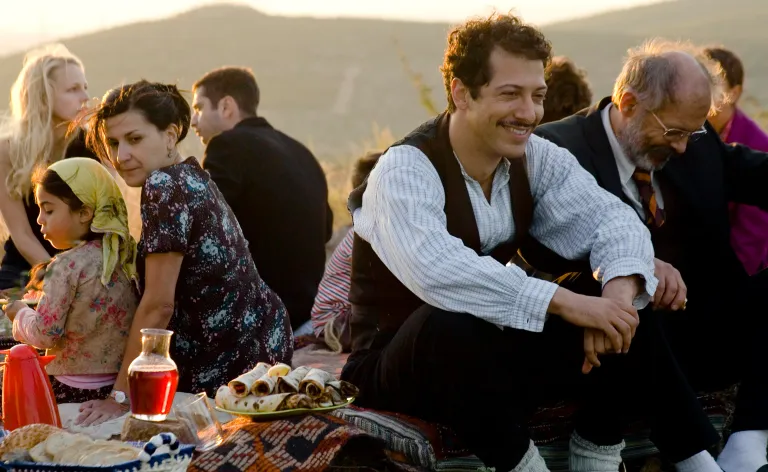
Una historia familiar sobre identidad y migración
A film series titled Stories of German Migration is currently taking place in a theater in my city. This series, through films by various directors, showcases the importance of migration within the culture and development of that country. Between that series and a series about Polish cinema that will soon begin in another theater here, you can expect my upcoming posts to be filled with references to those two countries. In between, I'll be posting other reviews of films I've been watching at home, but most of this month's series will come from these two series.
Actualmente se está llevando a cabo en una sala de mi ciudad un ciclo de cine titulado Historias de migración alemana que muestra, a través de películas de distintos directores, la importancia de la migración dentro de la cultura y el desarrollo de ese país. Entre ese y un ciclo que comenzará pronto en otra sala de acá sobre cine polaco, pueden esperar que mis próximas publicaciones estén repletas de referencias sobre esos dos países. Entre medio iré dejando otras reseñas de films que he estado viendo en casa, pero la mayoría de este mes provendrán de estos dos ciclos.
The first film I saw in this cycle was Almanya - Willkommen in Deutschland co written and directed by the German director of Turkish origin Yasemin Şamdereli who won the award for best screenplay at the German Film Awards with this work. The film tells the story of the Yilmaz family, three generations of Turkish-Germans, each with their own particular dramas and charms. First we have grandfather Hüseyin and grandmother Fatma, who after fifty years on German soil will finally go to the delivery of their German passport. Grandma is more excited than Grandpa, who feels a bit false because after so many years, even though he speaks German, he still feels Turkish and doesn't see what attraction it could have at his age to possess that “piece of paper”. Then we have the four children, now grown up, of this marriage: Veli, a successful businessman whose family seems not very interested in sharing with the rest; Muhamed, the second son, currently unemployed and somewhat depressed; Leyla, the only female and mother of Canan, a twenty-something who doesn't know how to tell her mother that she just got pregnant by her English boyfriend that no one knows about; and Ali, the youngest, the only one born in Germany, who's married to Gabi, a German blonde with whom he has a son, little Cenk, who doesn't speak a single word of Turkish, which leads him to question his identity after an incident at school. To his German classmates, Cenk is Turkish; but to his Turkish classmates, Cenk is German, or not Turkish enough, so the boy asks himself in confusion: What am I?
La primera película que vi de este ciclo fue Almanya - Willkommen in Deutschland co escrita y dirigida por la directora alemana de origen turco Yasemin Şamdereli que se llevó el premio a mejor guion en los premios del cine alemán con este trabajo. En la cinta se cuenta la historia de la familia Yilmaz, tres generaciones de turcos-alemanes, cada uno con sus dramas y encantos particulares. Primero tenemos al abuelo Hüseyin y la abuela Fatma, quienes después de cincuenta años en suelo germano por fin irán a la entrega de su pasaporte alemán. La abuela está más emocionada que el abuelo, quien se siente un poco falso porque después de tantos años, aunque hable alemán, se sigue sintiendo turco y no ve qué atractivo pueda tener a su edad poseer ese "pedazo de papel". Luego tenemos a los cuatro hijos, ya mayores, de este matrimonio: Veli, exitoso hombre de negocios cuya familia parece no estar muy interesada en compartir con el resto; Muhamed, el segundo hijo, actualmente desempleado y algo deprimido; Leyla, la única hembra y madre de Canan, una veintiañera que no sabe cómo decirle a su madre que acaba de quedarse embarazada de su novio inglés del que nadie sabe nada; y Ali, el menor, único nacido en Alemania, que está casado con Gabi, una rubia alemana con quien tiene un hijo, el pequeño Cenk, que no habla ni una sola palabra de turco, lo que lo lleva a cuestionarse su identidad a partir de un incidente en la escuela. Para sus compañeros alemanes, Cenk es turco; pero para sus compañeros turcos, Cenk es alemán, o no lo suficientemente turco, entonces, el niño se pregunta confundido: ¿qué soy?
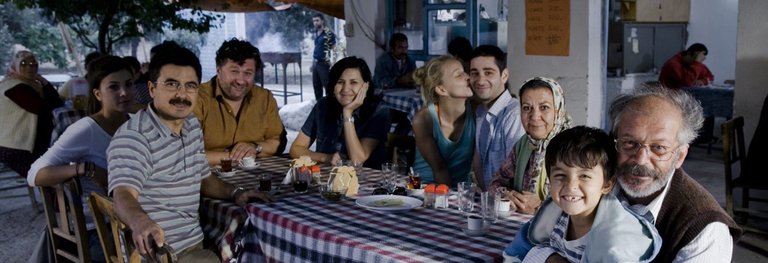
The so-called German economic miracle, which enabled the country's development and growth beginning in the 1950s after the catastrophe of World War II, was largely due to the migrant workforce, among whom Turks were among the most significant in terms of both number and commitment. This is where the German families with Turkish surnames come from, among whom we can mention the director of this film and prominent athletes such as former Real Madrid and German national team player Mesut Özil.
El llamado milagro económico alemán que permitió el desarrollo y el crecimiento del país a partir de la década de 1950, tras la catástrofe de la segunda guerra mundial, se debió en gran parte a la fuerza laboral de los migrantes, entre quienes los turcos fueron unos de los más importantes por cantidad y compromiso. De allí provienen esas familias alemanas scon apellidos turcos de entre los que podemos citar el caso de la directora de esta película o de deportistas destacados como el ex jugador del Real Madrid y de la selección alemana de fútbol, Mesut Özil.
Struggling with the problem of identity, each in their own way, the Yilmaz family embarks on a road trip to Turkey because the grandfather has bought a house and wants them all to go on vacation to see the house and remodel it. It will be something of a summer home, but the idea of the trip is also to reconnect their family with their origins, which is quite significant in the case of Ali and Cenk. The script is very dynamic and the director's idea of using non-linear time is brilliant, as she shows us in parallel the family's present with the Yilmaz's past, how the grandparents met, where they lived with their young children, how and why they came to Germany, but she does it through the voice of Canan, who begins to tell this family history to her cousin Cenk during the trip. While each of the characters has their share of participation and all that adds to the tragicomedy of Almanya, I would say that there are three main protagonists: Hüseyin, grandfather and patriarch of the whole clan and probably the one who has the longest time on screen (adding his young version and his old version); Cenk, for representing that identity crisis of the new generations born in foreign soil; and Canan, who is the link between the old and the new, the one in charge of passing on tradition and family history and who seems to be, at the same time, the one who best understands the grandfather and who can help Cenk with his doubts. Almanya is a patriarchal story, but at its center there's a woman: Canan.
Luchando con el problema de la identidad, cada uno a su manera, la familia Yilmaz se embarca en un viaje por carretera hasta Turquía porque el abuelo ha comprado una casa y quiere que en las vacaciones vayan todos a conocer la casa y a remodelarla. Será algo así como una casa de veraneo, pero la idea del viaje es también reconectar a su familia con sus orígenes, lo que es bastante significativo en el caso de Ali y Cenk. El guion es muy dinámico y la idea de la directora de usar un tiempo no lineal es brillantes, pues nos va mostrando en paralelo la actualidad de la familia con el pasado de los Yilmaz, cómo se conocieron los abuelos, dónde vivían con sus hijos pequeños, çómo y por qué vinieron a Alemania, pero lo hace a través de la voz de Canan, quien empieza a contarle esta historia familiar a su primo Cenk durante el viaje. Si bien cada uno de los personajes tiene su cuota de participación y todo eso suma a la tragicomedia de Almanya, yo diría que hay tres protagonistas principales: Hüseyin, abuelo y patriarca de todo el clan y probablemente quien tenga más tiempo en pantalla (sumando su versión joven y su versión anciana); Cenk, por representar esa crisis identitaria de las nuevas generaciones nacidas en suelo extranjero; y Canan, quien es el nexo entre lo viejo y lo nuevo, la encargada de pasar la tradición y la historia familiar y quien parece ser, a la vez, quien mejor entiende al abuelo y quien puede ayudar a Cenk con sus dudas. Almanya es una historia patriarcal, pero en su centro hay una mujer: Canan.
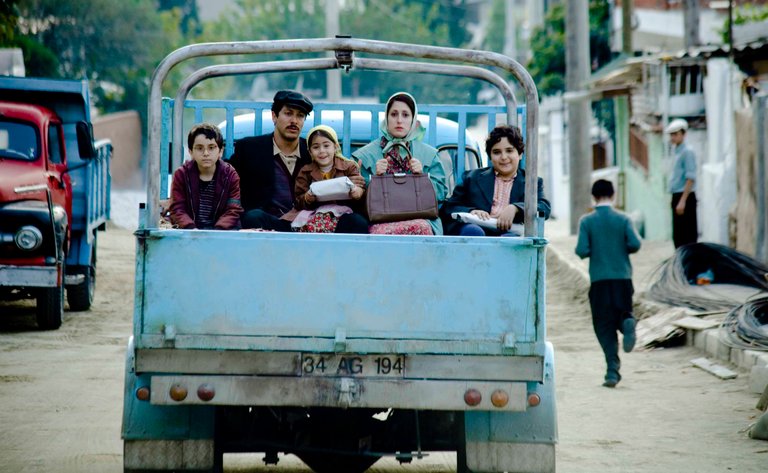
Like most family stories, this film is a mixture of funny, painful, worrying, euphoric moments and that integration of comedy, tragedy, road movie and migration is what gives Almanya that charm that you feel in every line of the script and in each of its 96 minutes of running time. The sacrifices, challenges and opportunities that one encounters when making a life in a country different from the one he/she was born in are universal (language, customs, food) and that makes that despite being a German film with Turkish protagonists, anyone, anywhere in the world, can identify with it.
Como la mayoría de las historias familiares, esta cinta es una mezcla de momentos divertidos, dolorosos, preocupantes, eufóricos y esa integración de comedia, tragedia, road movie y migración es lo que le da a Almanya ese encanto que se siente en cada línea del guion y en cada uno de sus 96 minutos de duración. Los sacrificios, desafíos y oportunidades con los que uno se encuentra a la hora de hacer vida en un país diferente al que nació son universales (idioma, costumbres, comidas) y eso hace que a pesar de tratarse de una película alemana con protagonistas turcos, cualquier persona, en cualquier parte del mundo, pueda identificarse con ella.
One of my favorite points about this type of film series is that one can come into contact with different stories, unusual to the present time in which we live; but that also brings with it a disadvantage that, in my case with Almanya, is that after the credits appeared on the movie screen, I had nowhere else to watch it again, which I would like to do, especially to better explain what I want to share with you next. At some point in the film there's a reflection on identity that is worth analyzing. I don't remember it exactly, but I will paraphrase some things without betraying the spirit of the phrase which, I think, is the most important thing. It goes something like this:
"A wise man answers the question of who and what we are: we are all that preceded us, all that lived before our eyes and all that was deemed appropriate for us. We are the existences that affect us and those that are affected by ours. We are that which will be after us, that which would not exist if we hadn't been born"
Beautiful way to synthesize the central themes of Almanya, a great film that has made me want to review more of Yasemin Şamdereli's filmography and keep attending the different film cycles that are held in Santiago, each one with its particular charm and with good films brought from anywhere in the world, Have any of you seen Almanya? What did you think of it? I'll read you in the comments.
Uno de mis puntos favoritos sobre este tipo de ciclos de cine tan particulares es que uno puede tomar contacto con historias raras, inusuales a la actualidad en la que se vive; pero eso trae consigo también una desventaja que, en mi caso con Almanya, es que después de que aparecieron los créditos en la pantalla del cine, no tenía en donde más volver a verla, lo que me gustaría hacer, sobre todo para poder explicar mejor lo que les quiero compartir a continuación. En algún punto de la película hay una reflexión sobre la identidad que vale la pena analizar. No lo recuerdo exactamente, pero voy a parafrasear algunas cosas sin traicionar el espíritu de la frase que, creo, es lo más importante. Dice más o menos así:
"Un hombre sabio responde a la pregunta de quiénes y qué somos: Somos todo lo que nos precedió, todo lo que vivió ante nuestros ojos y todo lo que se consideró apropiado para nosotros. Somos las existencias que nos afectan y aquellas que se ven afectadas por la nuestra. Somo eso que será después de nosotros, aquello que no existiría si no hubiéramos nacido"
Hermosa forma de sintetizar los temas centrales de Almanya, una gran película que ha hecho que quiera revisar más de la filmografía de Yasemin Şamdereli y seguir asistiendo a los diferentes ciclos de cine que se celebran en Santiago, cada uno con su encanto particular y con buenas películas traídas desde cualquier lugar del mundo, ¿Alguno de ustedes ha visto Almanya? ¿Qué les pareció? Los leo en los comentarios.
Reviewed by | Reseñado por @cristiancaicedo
Other posts that may interest you | Otros posts que pueden interesarte:
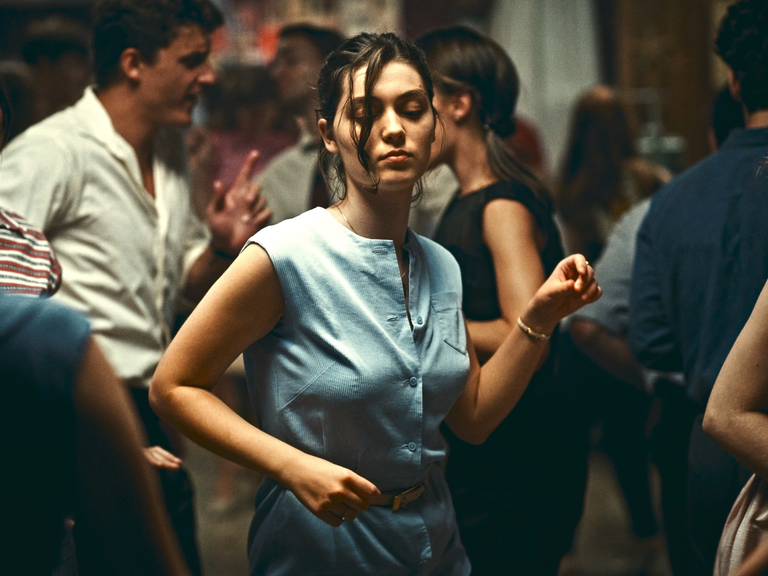 |
|---|
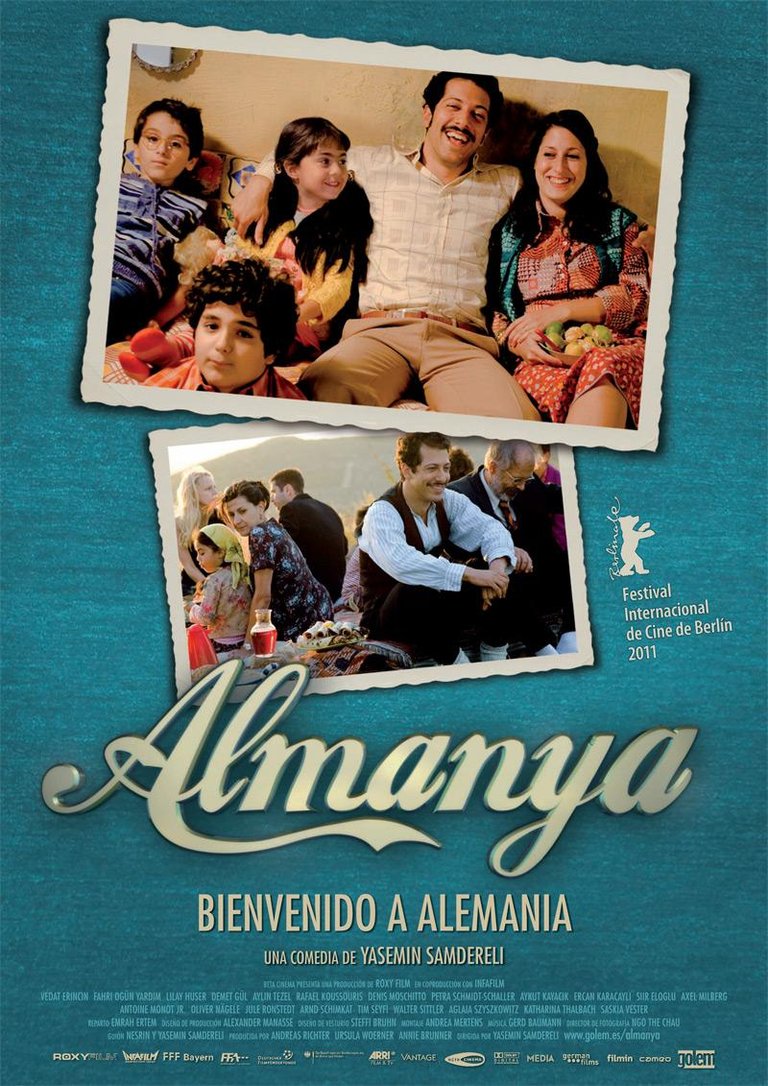
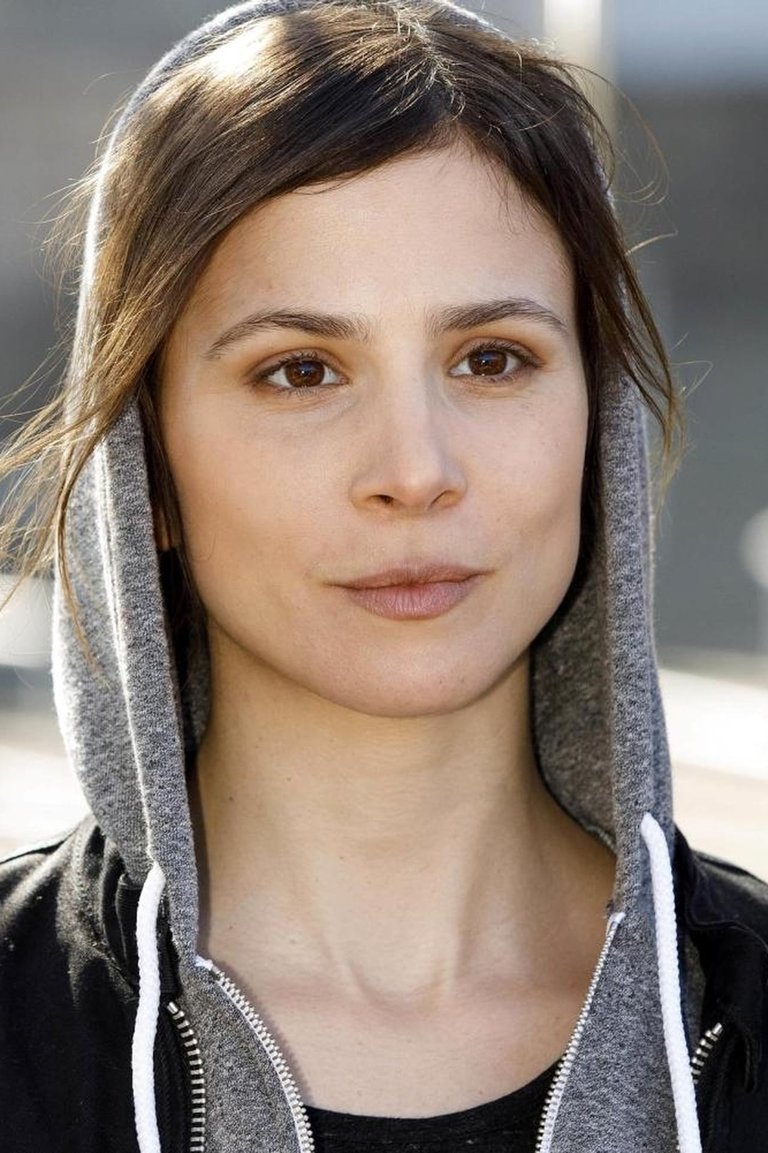

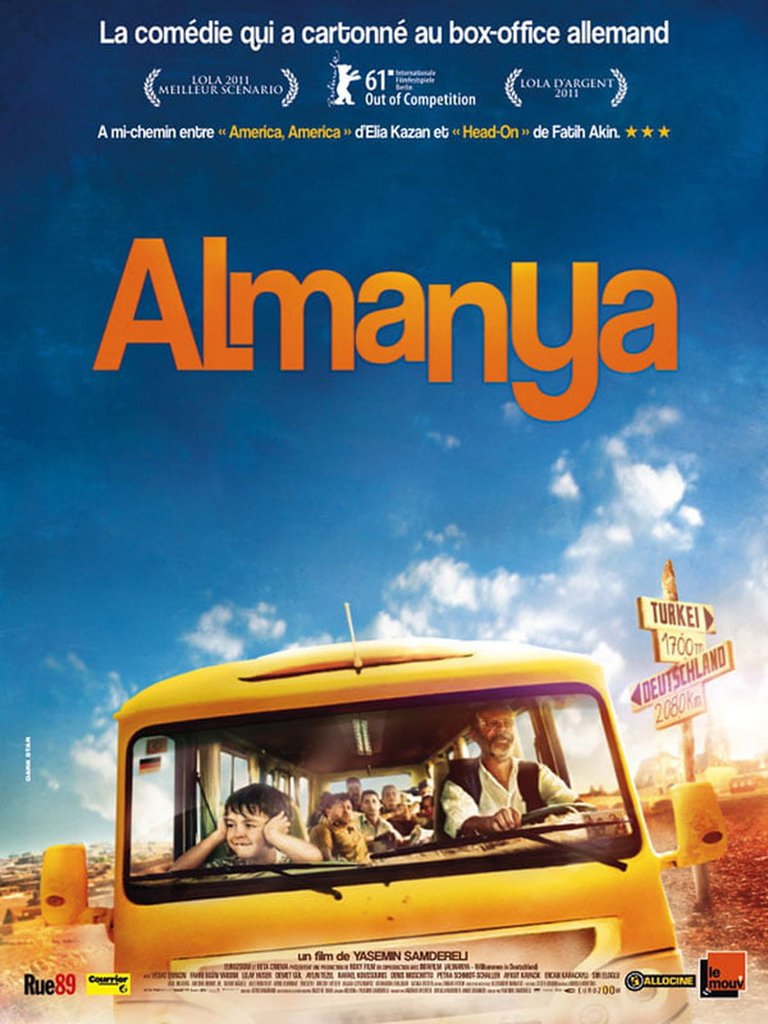
Excelente reseña, le daré un oportunidad